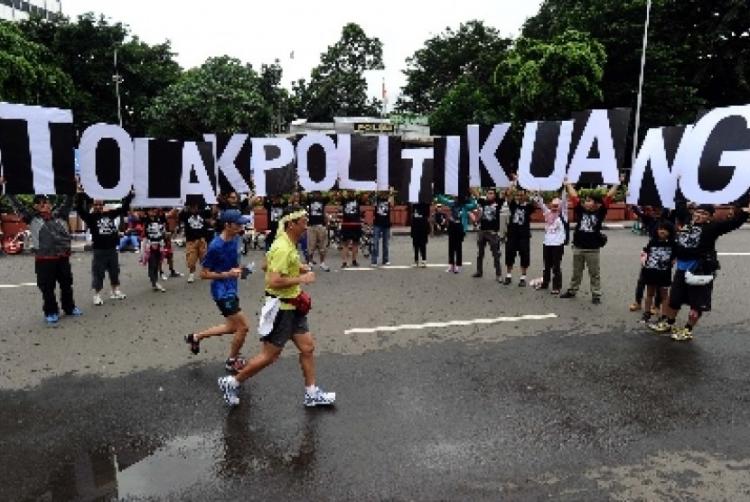A Specter is Haunting the Regional Elections – The Specter of Money Politics

One of the specters haunting the conduct of “Feasts of Democracy” i.e. the political elections of Indonesia, both national and regional, is the practice of money politics. The terminology refers to the practice of buying votes by election participants as well as by supporters, whether official or not, usually conducted before a vote is held. Due to money politics, voters lose their autonomy to elect candidates for public officials through rational considerations, such as track records, performance, programs or campaign promises, and choose candidates merely for pecuniary gains. Such money politics is generally prohibited by law, including the Election Law.
Although regulations against it have been set up, the effectiveness of the eradication of money politics is still very doubtful. Yet, money politics has undermined the electoral democracy system and made elections less credible. As a result, many public officials were elected due to the effect of bribes to voters, rather than objective factors mentioned above. Therefore, many local officials resulting from the regional elections have been ensnared in corruption cases after taking office.
Meanwhile, in the process of determining candidates, another form of money politics is also occurring, more commonly known as candidacy buying. In this practice, political parties or elites of political parties demand a certain amount of money to potential candidates, so that they are appointed as official candidates of the parties and obtain recommendations from the political parties. In other cases, candidates buy the support of political parties, so that political parties do not propose other candidates opposed to them. Still, what is often referred to as political dowry, as in the case of La Nyalla in East Java, is difficult to prosecute legally.
Learning from previous regional elections experiences, the election organizers, both KPU and Bawaslu seem to continue having difficulties to confront the specter of money politics. Although the regulation has been revised, in which both those who give money and receive money may be criminally punished, the issue of corroborating the evidence remains an obstacle in upholding the law.Therefore, the possibility of money politics will still prevail in the 2018 simultaneous regional elections cannot be denied.
Another problem that may arise is whether by enforcing the law against the perpetrators, both the recipients and the givers, the process will bring justice, where donors and candidates benefiting from money politics can also be prosecuted and held accountable. In this context, we must wait for concrete steps of the Anti-Money Politics Task Force formed some time ago. The KPK and the Police are two institutions in the Task Force that already made promises to crack down on perpetrators of money politics. Hopefully the new initiatives of the KPK and the Police can discourage the many candidates in the upcoming Pilkadafrom distributing money ahead of the elections. *** (Adnan)










